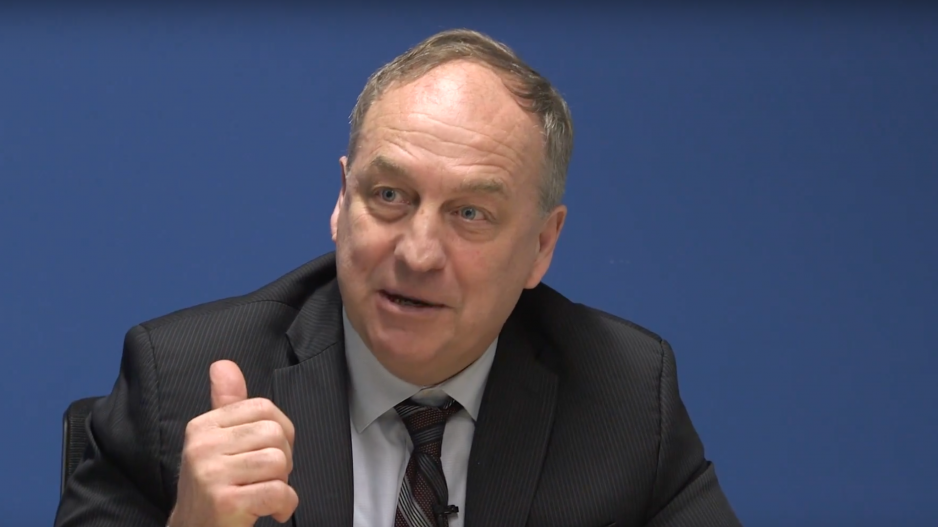Andrew Weaver will not seek re-election in the next provincial election and will step aside as leader of the BC Green Party.
Weaver said in a press conference Monday, October 7, that he will stay on as MLA for Oak Bay-Gordon Head until the next election in 2021, but will not seek re-election.
The Green Party will begin a process to find a new leader, a process Weaver said he expects to be concluded next summer. He will stay on as leader until then.
Weaver was recently diagnosed with labyrinthitis – an inner ear condition that can cause dizziness, nausea, and loss of hearing - but did not cite health concerns as his reason to step aside and not seek re-election.
Rather, he said it was time for someone younger to take over the leadership, since younger generations have more at stake when it come to the impacts of climate change, and cited the recent youth-led climate strike movement as an opportunity.
"This incredible movement is being led by youth -- the ones who must live the consequences of the decisions that we make," Weaver said. "And their moment is growing. This is also one of the main, if not the main, reasons why I believe it is time for the BC Greens to elect a new leader. It's time to let another generation take the lead."
The next provincial election is to be held on October 16, 2021.
Weaver was a renowned climate scientist before entering politics. He was a professor at the School of Earth and Ocean Sciences at the University of Victoria, and has been a lead author with the Intergovernmental Panel on Climate change (IPCC).
He left academia to run for the Green Party in 2013. He was the first Green MLA elected in B.C. and that year became the Green Party’s leader. Weaver said the reason for entering politics was that B.C. had gone from a climate leader to a climate laggard.
The Green Party won three seats in the last provincial election, and ended up having significant influence, after entering a governing agreement with the NDP, which resulted in the NDP forming a minority government, despite having won fewer seats than the Liberals.
The Greens pressed the government to hold a referendum on electoral reform. But last year, in a referendum British Columbians rejected a change from the current first-past-the-post system to proportional representation.
Weaver also failed to convince the NDP government to cancel the Site C dam project, and he also failed to convince the government to reject an LNG industry.
However, Weaver pointed to the CleanBC plan as one of his accomplishments, since the Greens had lobbied hard for more robust climate change policies.
"The foundation of this minority government is climate change," Weaver said.




